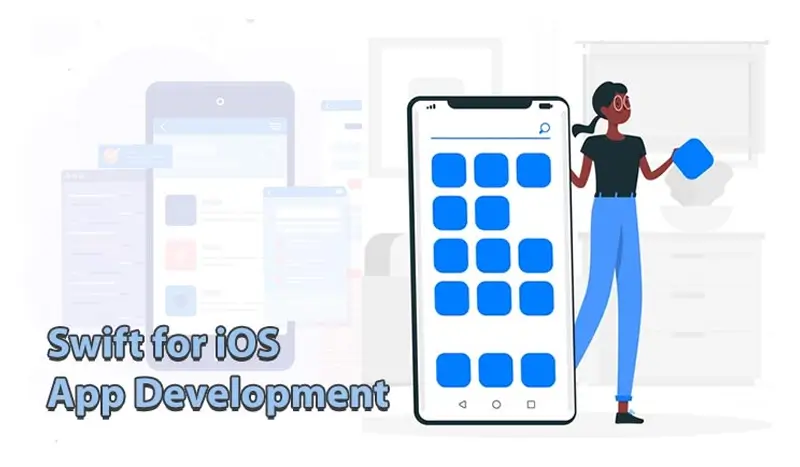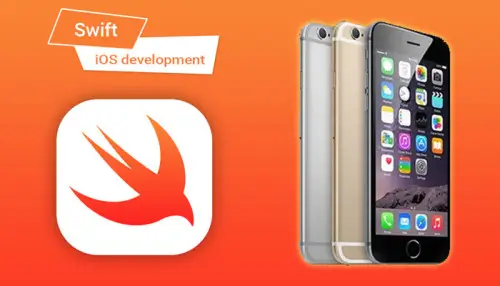Introduction
Swift is multi-paradigm, a general-purpose programming language that was developed by Apple Inc. for its different operating systems like iOS, tvOS, macOS, watch OS. It supports Linux, Darwin, free BSD like multiple OS, It is a static and strongly typed discipline. Swift is designed to work along with Apple’s Cocoa framework and Objective C library to work in Apple products. Extension filename for the swift files is .swift to support core components from Objective C.
Through many core concepts, Apple supports Swift is associated with Objective-C, dynamic dispatch, late binding, extensible programming to catch software bugs. Swift has features addressing some common programming errors like null pointer dereferencing and provides easier syntax to avoid the pyramid of doom. Swift supports types, structures, and classes, where Apple promotes in programming paradigms as protocol-oriented programming.
Benefits of Swift Programming Language
1. Open-Source Community
Swift is an open-source as well as a developer-friendly programming language. The developers for iPhone applications can explore, enhance Swift language, contribute to bug fixes, add new features and platforms, and so much. In Swift, an open-source, made with a strong community of developers.
2. Readability for Easy Code
Swift programming language is easiest to read and write. It uses simple syntax for the iPhone App Development language. Swift is similar to Objective C. You have to write so few lines of code compared to Objective C using simple and clean syntax throughout the code. In Objective C, it is necessary to add semicolons at the end of the parenthesis for conditional statements due to getting errors while compiling. But in Swift, these are not required. This has made Swift more simple and clean and user friendly as compared to C/C++. Hence, almost all language programmers can easily grasp with Swift and develop iOS applications.
3. Slower compilation speed
Compilation speed is much slower in Swift projects. As Swift is a more complex language and more feature-rich, it is harder to ensure that everything is exact. Each time, this costs time and money. Swift programming language is approximately 2.6x faster than Objective C. Swift is super-fast for iPhone application development.
4. Less Error-Prone
Null value as nil pointers is handled in different ways in Objective-C. Whenever you call a method with a nil pointer variable, nothing returns. But, it becomes the source of a huge list of bugs that the developer is unaware of and brings his efficiencies to the zero level. But, this is not the case with the Swift programming language. While defining the method, the iPhone app developer can define whether the value exists or it is nil (null). So, if the developer has mistakenly taken nil optional value, Swift triggers the runtime crash. This crash forces the iPhone app developer to resolve the bug right away and remains on the line of code with the nil pointer’s optional value. Hence, Swift is strict for iPhone app developers to develop bug and exception-free apps.
5. Multiple Devices Support
Swift is a programming language that supports iPhone, iPad, Apple Watch, Apple TV, and Mac devices that are developed by Apple. Swift is not just limited to, support Apple devices, but Linux and Windows devices as well. In fact, about its new upcoming operating system, So, Swift is not going to just limit it to Apple devices. Across the technology world, it will support multiple devices.
6. Dynamic Libraries Support
Dynamic libraries are executable for code that can be linked to an app. This feature allows links against the latest versions of the Swift language. Dynamic libraries are directly uploaded to the memory on the initial size of the app and ultimately increasing app performance.
7. “Playgrounds” Backed
Playgrounds enable programmers to test out a new algorithm without having to create a complete app. Apple has added code execution to Playgrounds to help programmers create a group of code or write an algorithm while receiving feedback. With the help of data visualizations, this feedback loop can improve the speed at which code can be written. To make app development easier and more approachable necessary to do Playgrounds and Swift together for Apple’s efforts.
8. High-Level Performance
Swift is 3.4X quicker than Objective C. Also, the code execution is quicker than Objective C. Swift supports dynamic libraries and multiple devices that improve the speed through which the apps are developed and updated. This ultimately improves the performance of the Swift apps to a great extent.
The Benefit of Swift over Objective C:
1. Swift is the latest programming language that is developed by Apple and can be run on various cross-platform operating systems such as Linux, Darwin, Free BSD, etc. whereas Objective C is a general-purpose object-oriented programming language used by Apple in its operating systems and APIs Cocoa, etc.
2. Swift has safe programming patterns, the syntax in Objective C, complete access to Cocoa frameworks whereas Objective C also supports the same features as C++ except for STL and includes foundational frameworks.
3.Swift has object-oriented and procedural features in its language and in-built functionalities in its library whereas Objective C has different data types, tokens to recognize the identifiers, declarations, and assignments and pre-processor to define constants.
4.Swift supports different operators such as Arithmetic Operators, Logical Operators, Bitwise Operators, Relational Operators, Assignment Operators, Range Operators, and Miscellaneous Operators whereas Objective C also supports the same operators except for range and pre-processors which are not the part of the compilation process.
5.Swift supports Dictionaries, Functions, Closures, Enumerations, Structures, etc. whereas Objective C supports Posing, Extensions, dynamic binding, Protocols, Composite Objects, Memory Management, and Enumerations.
6.Swift supports optional chaining, typecasting, generics, protocols, subscripts, etc., whereas Objective C allows dynamic dispatch, auto-generation of accessors to access member variables and properties, and allows a method and a name to share the same identifier.
7.In Swift, calling a method will be decided at compile time and is similar to object-oriented programming whereas in Objective C, calling a method will be decided at runtime.
8.In Swift, errors can be handled using protocols to avoid the unexpected flow of program control whereas Objective C has nil which can be safely handled in a powerful way by safely sending messages to nil objects.
9.In Swift, operator overloading is supported and is global in terms of scope and simplicity whereas Objective C does not support default parameters but can be implemented by multiple methods manipulation and also does not support private members.
10.In Swift, Arc (Automatic Reference Counting) is the feature that handles the garbage collection where emptied memory is allocated to the required processes whereas Objective C does not support stack-based memory objects and allocating memory in Objective C is very expensive and it plays a key role in writing successful programs for the delivery of efficient applications.
11.In Swift, class objects are declared as general object-oriented programming languages whereas Objective C has an embedded object inside an object, by means a private declare object will be embedded into the main object along with some primitive methods.
12.In Swift, advanced operators exist to handle the manipulation of the complex value whereas Objective C has a fast enumeration feature where collections are core components of this feature.
Advantages:
1. Swift is open-sourced and easy to learn.
2. Swift is fast, safe, and expressive.
3. Swift is approachable and familiar like C and C++ code can be added by Swift programmers into Swift applications.
4. Swift is the future of Apple’s development.
5. Swift is enterprise-ready.
Disadvantages:
1. The language is still quite young and the talent pool is limited.
2. Swift is considered a “moving target” as it is a new language and the numbers of swift programmers are few.
3. Poor interoperability with third-party tools and IDEs.
4. Lack of support for earlier iOS versions.
Conclusion
The Swift programming language seems to be the future of developing high-performing and it is also a secured app. And, this is the reason it is being adopted by Apple’s competitors as well. Looking at the benefits Swift offers, sooner it will reach the top of the app development charts.
There are several factors during every time organizations start a new mobile project to take into account, whether decided to use Swift or Objective-C for development. Selecting the most appropriate language depends on the project and team context preference for a particular programming language. Swift takes a lot of useful components from Objective-C for allowing developers to write safer, more reliable code. It is a leading programming language for creating engaging and also a user-friendly mobile app.
For more information, get in touch with us today!







